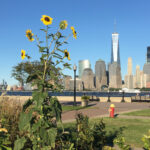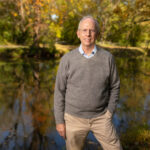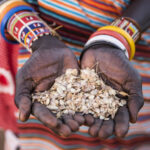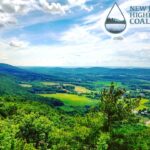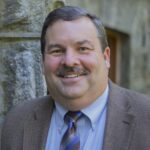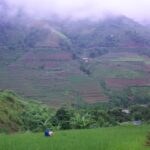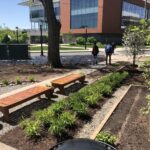Outbreak provides opportunity to reset economy and reverse ecosystem, species losses The COVID-19 pandemic provides an opportunity to reset the global economy and reverse decades of ecosystem and species losses, but most countries are failing to invest in nature-related economic reforms or investments, according to a Rutgers-led paper. Indeed, some countries, including the United States, Brazil […]
Human Ecology
Associate Professor Daniel Van Abs Gives to Scarlet Promise Grants
Daniel Van Abs sees how students grapple with affording a college education and wanted to help ease their burden. Daniel Van Abs, a Cook College graduate and Rutgers professor, has been making modest gifts to the university for more than 20 years. But he felt he needed to do more because of what he is […]
Four SEBS Faculty Honored at Chancellor’s Celebration of Faculty Excellence
On September 24, the Rutgers-New Brunswick Chancellor’s Celebration of Faculty Excellence was conducted virtually to honor faculty members at all stages of their careers whose outstanding work has been recognized by their peers. Among the honorees across the News Brunswick campus were four faculty members of the School of Environmental and Biological Sciences, whose interim […]
More Than Words: Communicating About a COVID-19 Vaccine
Health officials can’t rely on a one-size-fits-all message when it comes to communicating with the public about a forthcoming COVID-19 vaccine, says Professor William Hallman, an experimental psychologist who uses scientific research to explore human behavior. Many questions are circulating about a forthcoming vaccine for COVID-19. When will it be ready? How effective will it […]
Seafood Products Made From Cells Should be Labeled Cell-Based
Rutgers study examines potential names for package labels to meet FDA rules Companies seeking to commercialize seafood products made from the cells of fish or shellfish should use the term “cell-based” on product labels, according to a Rutgers study – the first of its kind – in the Journal of Food Science. Both the U.S. […]
Rutgers-led research shows how local knowledge can help manage ecosystems and wildlife
Grassroots knowledge from Indigenous people can help to map and monitor ecological changes and improve scientific studies, according to Rutgers-led research. The study, published in the Journal of Applied Ecology, shows the importance of Indigenous and local knowledge for monitoring ecosystem changes and managing ecosystems. The team collected more than 300 indicators developed by Indigenous people […]
NJ Senate Confirms Dan Van Abs Nomination to the NJ Highlands Council
Yesterday the NJ State Senate confirmed Dan Van Abs nomination to the Highlands Council (aka New Jersey’s Water Protection and Planning Council). This agency is responsible for guiding capacity based development in the Highlands region that is consistent with the natural and cultural resource protection goals of the Highlands Act and the Highlands Regional Master […]
Announcing Department of Human Ecology Chair: William Hallman
Announcement by Laura J. Lawson, Interim Executive Dean of the School of Environmental and Biological Sciences. It is my pleasure to announce that Dr. William Hallman has been reappointed to serve as Chair of the Department of Human Ecology. Dr. Hallman has served as Chair since 2010. Hallman is an experimental psychologist with an expertise […]
How to Tackle Climate Change, Food Security and Land Degradation
Rutgers-led research highlights lesser-known options with fewer trade-offs How can some of world’s biggest problems – climate change, food security and land degradation – be tackled simultaneously? Some lesser-known options, such as integrated water management and increasing the organic content of soil, have fewer trade-offs than many well-known options, such as planting trees, according to […]
Living Labs In Action: Experimental Gardening on Cook Campus
By Darrian Beam (SEBS ’21), Green Team Steward, Rutgers School of Environmental and Biological Sciences (SEBS) One of my favorite past-times at school is taking a walk around Rutgers Cook campus. When I’m stressed about exams and assignments, it’s a real treat to stroll through the greenery here and let my thoughts wander. Although we do […]

